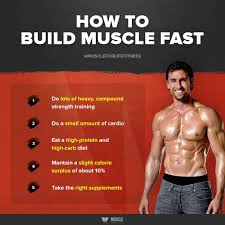
When starting out, a beginner should focus on compound moves. This will allow muscles to work harder without feeling strained. Also, allow 48 hours for your muscles to rest between workouts. Beginners shouldn't attempt to work every muscle group separately. This will limit the body's ability to build muscle and cause more time for recovery. Compound exercises are best for beginners because they target several muscle groups at once, and can be performed efficiently on the whole body.
Here are 10 top full-body exercises that beginners can do
Beginners should avoid complicated moves and focus on full-body workouts that will engage all muscle groups. Also, it is important not to strain your body and to stop whenever you feel discomfort. Your body will need to be stretched after a workout. Beginners should also follow a proper stretching routine after workouts to avoid injury.
Full-body exercises can be performed without any equipment and can be done in about half an hour. These exercises can help you lose fat and calories, as well as increase your stability and tensegrity. You can also target multiple muscles at once with full-body exercises.
Focus on the compound movements
It is important for beginners to concentrate on compound movements. These are movements that involve multiple major muscle groups. Compound movements save you time and energy because they engage more muscles at once. Compound movements can be difficult for beginners due to the need for coordination and good form. These tips will help you improve your form, and teach you more compound movements.

Carry is a great exercise for beginners. This exercise targets all major muscle groups, from the shoulders to the arms. You can use dumbbells or a weighted barbell to do this exercise. Do this exercise standing up as it is the best way for you to hit all three of your deltoid heads.
While doing full-body workouts, avoid back discomfort
Full-body exercises for beginners can be painful if you don't know how to prevent it. To prevent pain, you must use the correct form and weights. A bench or wall can also be used to support the body. Keep your head and shoulders high off the ground while you slowly lower and extend your body. This will prevent back pain.
Upper-body exercises are good for strengthening the large muscles of your back. To avoid placing unnecessary strain on the back joints, ligaments, or muscles, it is important to use the right technique. Do at least six repetitions of each exercise and do two sets. Also, make sure to do these exercises in a semi-reclined position if you have back pain.
Start with a 3-day program
Try to do three days of complete body exercises per week in order to get the best out of your workout. This will give you enough recovery time between workouts. It is best to split your workouts on Monday, Wednesday and Friday with one day off. Weekends are a time for relaxation and recovery, so plan your weekends carefully. It is possible that you will have to miss a workout because of an unforeseen event. If this happens, you can simply make up the lost day.
Good warm-ups are important for anyone who works out. For beginners, it is best to avoid lifting heavyweights. This will prevent injury and cause form problems. Mobility exercises that target the hips, knees and shoulders are important as well. For beginners, it is important to be consistent with their form and not try to imitate more experienced lifters. Remember, the longer you practice, the more you will improve.

With full-body exercise, you can avoid repetitive motion injury.
To avoid repetitive motion injury, you can do full-body exercises. These injuries can cause pain and interfere with your daily life. These injuries are commonly known as tendinitis or bursitis. These conditions result from inflammation of joints caused by repetitive motion exercises or excessive use. They can affect any of the joints, including the knee or ankle. Tennis elbow, runner’s knee and swimmer’s shoulder are other examples of repetitive motion injury.
Repetitive Motion is the leading cause for RSIs. Many types of activities require repetitive motion. Swimmers can sustain repetitive motion injuries every day from the repetitive motion of swimming. They should improve their form and strengthen the core muscles to avoid these injuries.
FAQ
What is Nutrition Good for?
By providing all the nutrients necessary for growth and development, nutrition helps your body function well. It is important to eat a balanced diet, rich in fruits and veggies, lean proteins, whole grain, and healthy fats.
What happens if I don’t get enough sleep?
Lack of sleep means that your brain does not receive enough signals to regulate hormones. As a result, your body may become more hungry and can gain weight. You may also feel stressed, which can lead you to overeating.
What are Cardio Exercises and How Do They Work?
Cardiovascular exercise is any activity that requires your heart and lung to work harder than normal. Examples include jogging, swimming, bicycling, rowing, and dancing. These activities are great for burning fat and increasing metabolism. These activities can help you keep fit and strengthen your heart.
How many hours sleep should I get each night?
The amount of sleep recommended depends on your age, gender, and personal needs. Most adults need between 7 and 9 hours of sleep per night. Teenagers and young children generally need around 10 hours of sleep each night. This number decreases as they age.
Statistics
- An estimated 110,000 deaths per year could be prevented (cdc.gov)
- Globally, 81% of adolescents aged 11-17 years were insufficiently physically active in 2016. (who.int)
- According to the Centers for Disease Control and Prevention, chronic diseases cause 7 out of 10 deaths in the U.S., and treating chronic diseases accounts for 86% of U.S. healthcare costs. (mana.md)
- Adolescent girls were less active than adolescent boys, with 85% vs. 78% not meeting WHO recommendations of at least 60 minutes of moderate to vigorous intensity physical activity per day. (who.int)
External Links
How To
How to motivate you to exercise regularly
A fitness regimen is a sequence of exercises that is performed consistently over a certain time. It helps to tone and build muscle mass. Regular exercise improves cardiovascular health, blood pressure, cholesterol, risk of heart disease, stroke, diabetes, anxiety, stress and obesity, as well as other diseases like depression, anxiety and osteoporosis. In addition to these psychological benefits, regular exercise also provides psychological benefits like self esteem, confidence and mood, energy level, sleep quality and social interactions.
Why do you want to follow your own fitness routine?
To lose weight, improve your health, and become fit, you need to start a fitness program. You might be wondering why you would want to do this. Let's find it out!
What does it mean, to be a part of a fitness program?
It's about engaging in at least three physical activities per week. This doesn't mean you have to do it for hours. Just 30 minutes can burn calories and keep your body healthy. You must stick to your plan. Do not worry if you forget a day. You can just pick up from where you left off the previous time.
How much time do I need to dedicate to my fitness routine?
It all depends on how busy your schedule is. For a moderate workout, it takes between 20 and 30 minutes. If you are new to exercise, start slowly, with 5-10 minutes at first. Once you feel comfortable, increase your duration slowly.